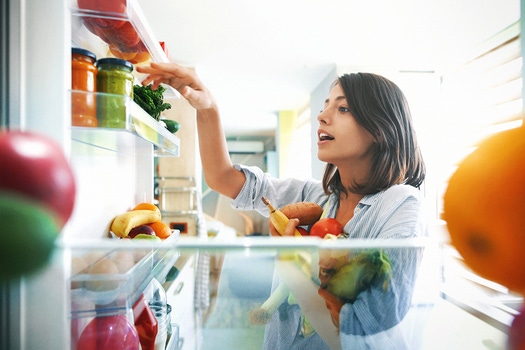
12 genius food storage tips to help your food last longer
Food waste has a substantial impact on both the planet and your wallet. New Zealand households throw away 157,389 tonnes of food a year. That is equivalent to 271 jumbo jets of food.
The good news is, there are plenty of ways to reduce the impact of food waste in your home. Storing food properly is one of the first and most often overlooked steps. Here are 12 easy tips and tricks to follow:
1. Store nuts and seeds in the fridge
Did you know nuts and seeds have a limited shelf life? Keep them fresher for longer by storing them in the fridge or freezer. Make sure to store them in an airtight container for maximum freshness and mark the best before date on your container. You can refrigerate nuts and seeds for up to four months and keep them frozen for up to six months. This also applies to 100% nut and peanut butters.
2. Treat herbs like a bouquet of flowers
For soft herbs such as basil, mint, parsley and coriander, trim the ends off the stems and place them upright in a glass jar. Add water and store in the fridge, with the exception of basil, which should be stored at room temperature. You can also extend the life of hardy herbs like rosemary or thyme by placing them in a zip-lock back with a damp piece of paper towel in the fridge.
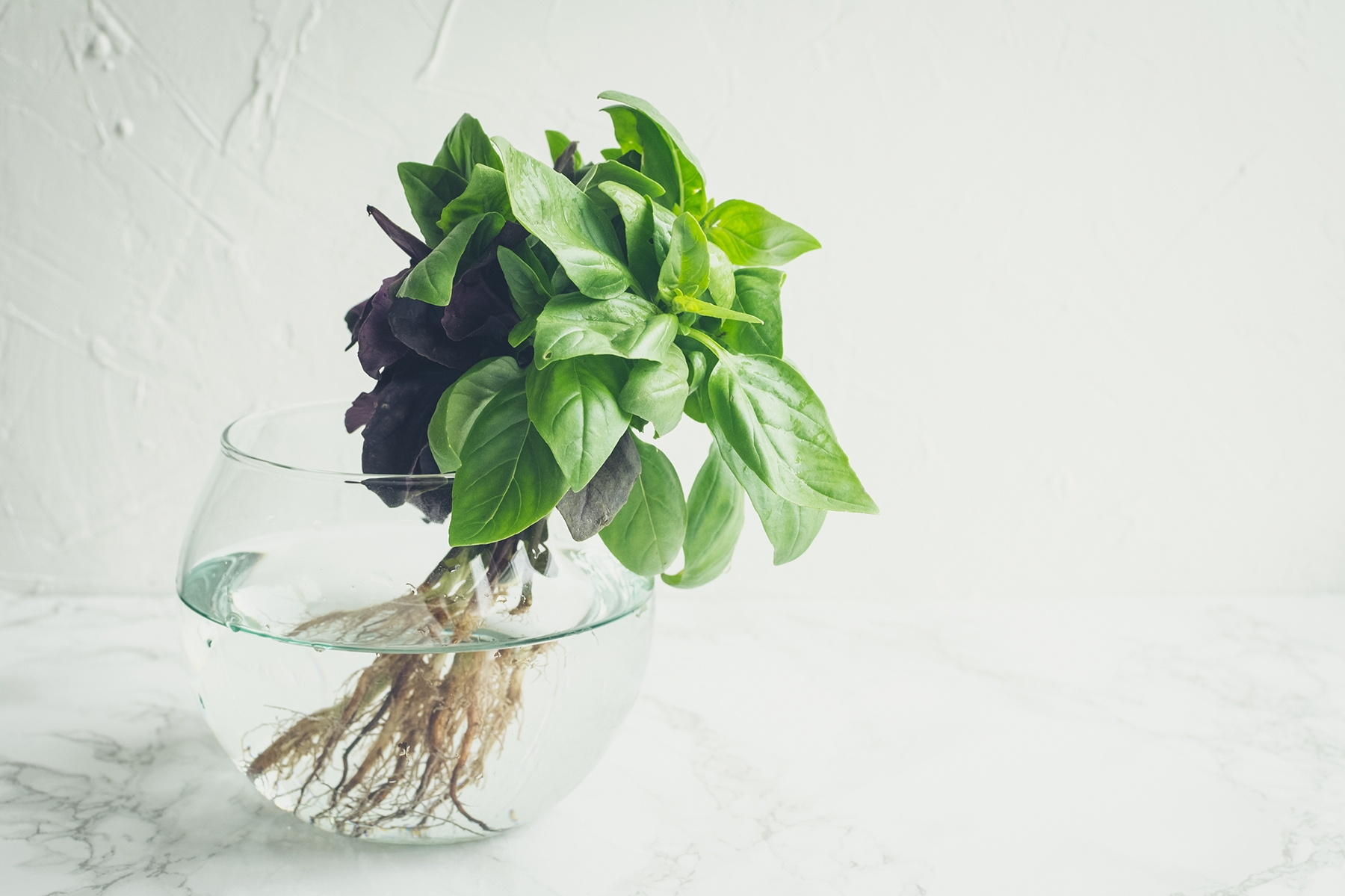
3. Preserve herbs in ice cube trays
If you have fresh herbs that you’re not going to get through, freeze them in ice cube trays for up to a year. You can either freeze them in water, which will offer a neutral flavour for cooking, or oil, which will help to preserve their flavour.
4. Give berries a vinegar rinse
Berries have a shorter shelf life than most fruits. To avoid nasty mould spores, wash them in a solution of 3 cups of water mixed with 1 cup of vinegar. Freezing berries and other fruits will also extend their shelf life, and allows you to enjoy local, seasonal fruit all year round.
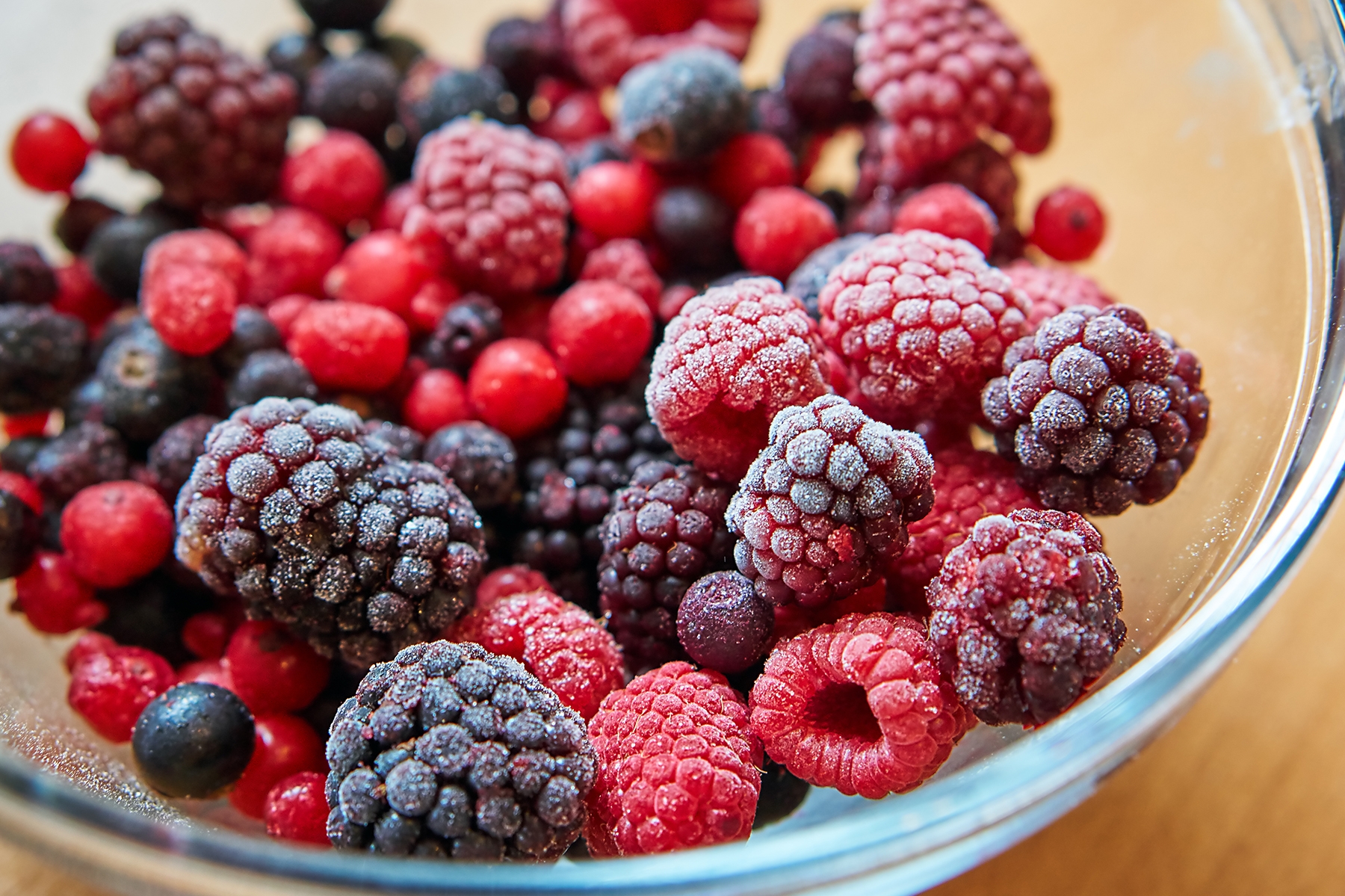
5. Store leafy greens with paper towel
To keep your leafy greens fresh and crisp, store them in a container lined with paper towel. This will draw out the moisture to prevent them from wilting. If you have a mountain of greens that you’re not going to get through, you can also puree them to make frozen smoothie cubes, for a quick and easy nutritional booster.
6. You can freeze left over avo!
Don’t let any avocado go to waste. If you have any leftovers, simply dice or smash the flesh. Add a squeeze of lemon to stop the avocado from browning and then put it in a zip lock bag, taking care to remove the air. You can store avocado in the freezer for up to six months. Frozen avocado is great to add to a smoothie. This is also a good trick for other fruits including bananas (peel them first) and berries.
Subscribe to Wholicious Living to stay up-to-date with the latest health and nutrition advice.
7. Freeze plant-based milks
If you’re struggling to get through a carton of almond, oat or soy milk, you can freeze it in ice cube trays for later use. However, limit its use to smoothies and cooked recipes such as curries once frozen, as freezing can alter the taste and texture of plant-based milks.
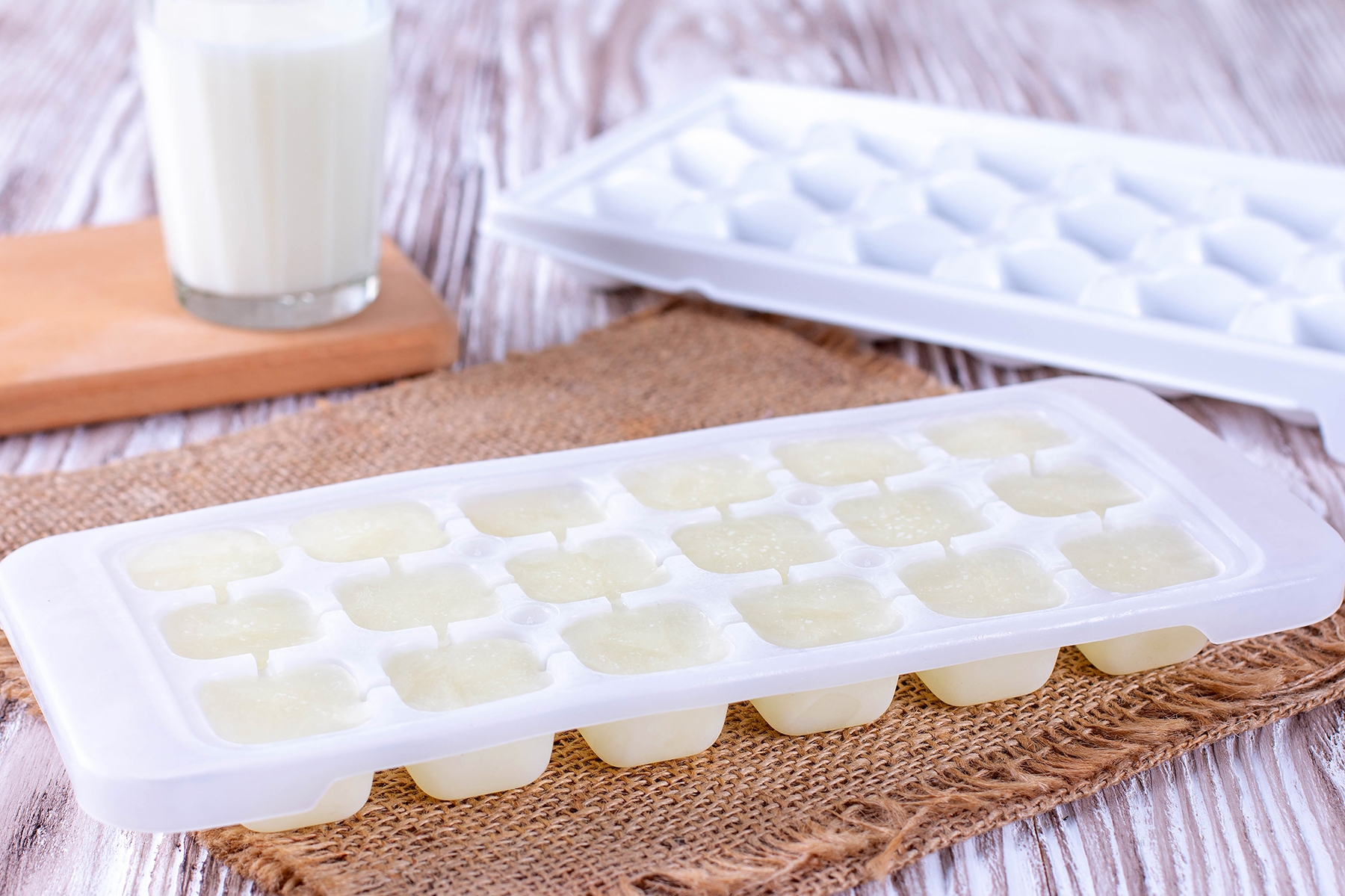
8.….and cooked grains
Ever find yourself throwing perfectly ok rice or quinoa in the bin? You can also freeze grains to avoid this. Just cook them as usual, then portion accordingly and freeze for up to three months. They’ll taste as good reheated as when they’re fresh!
9. Empty the tins
Tinned foods make healthy cooking easy but once opened, tinned contents can be highly perishable. If not used immediately, transfer to an airtight container along with the juices, brine or sauce the food came in. Keep it in the fridge for as long as you would with the fresh version. If you don’t think you’re going to get through the whole tin, pop it in the freezer within three days of opening. This works especially well for canned fruit, which can be used to make delicious smoothies.
10. Ask yourself where it was grown
For fruit, a good rule of thumb is that if it grew in a tropical climate, you can assume it won’t like the cold. Bananas, mangoes and stone fruit, which turn soft and sweet, are best kept in a bowl on the bench. Fruits that prefer the cold, including apples, berries, grapes and oranges, should be stored in the fridge.
TIP – some fruits emit ethylene a natural ripening gas that can speed up the ripening process of other fruits and veggies around them. Some common fruits that emit ethylene include apples, bananas and citrus fruit. Keep them separate to slow ripening, or use them to help you ripen fruit quicker. Popping an avocado in a brown paper bag with an apple or banana will help ripen the avo quicker.
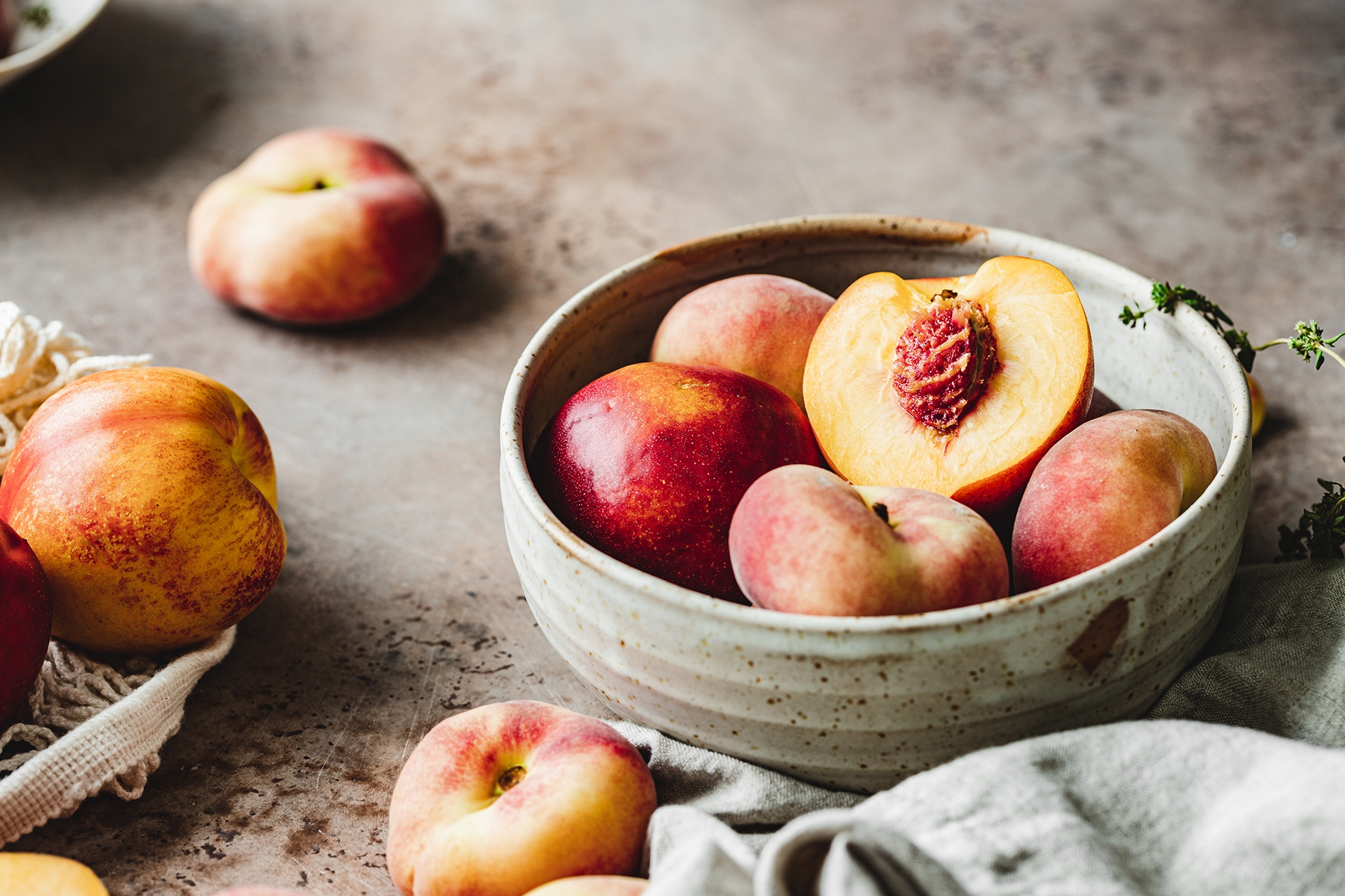
11. Don’t store bread in the fridge
For all the joy bread brings, a considerable weakness is that it doesn’t last long. To keep it fresh, ensure it’s wrapped in its original packaging. If you go through a loaf quickly, a breadbox is the best place to prolong the life of bread. Or if you don’t have one, keep it in a cool spot at room temperature. Avoid storing bread in the fridge as it will spoil more quickly. Freezing bread is the best way to stop it from becoming mouldy or stale, just make sure to freeze it in slices so it’s easy to defrost.
12. Look after the humble spud
The humble potato is sensitive to light and humidity, so keep them out of the sunlight and fridge in a cool, dark place. Make sure they have airflow and try to keep them away from onions, which also like the dark, as they can encourage potatoes to sprout. Kūmara are also best stored this way, but are less sensitive to light and won’t sprout.

The latest nutrition advice, plus health and wellness tips delivered to your inbox monthly